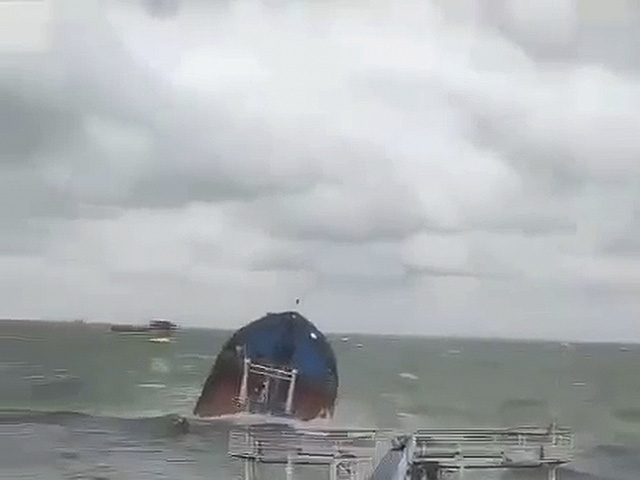Environmentalists from Greenpeace report that the Russian tankers Volgoneft-212 and Volgoneft-239, which crashed in the Kerch Strait, could have carried up to 10,000 tons of oil products. If such a quantity of raw materials ends up in the sea, this accident will be one of the largest man-made disasters in the Black Sea, writes BBC News, citing experts.
“Any spill of oil or petroleum products in these waters could have serious consequences. They depend on the prevailing winds and currents (which are currently moving to the northeast) and in the current weather conditions the spill will be very difficult to contain,” explains the head of the Greenpeace Research Laboratories Paul Johnson.
Environmentalists recalled that in November 2007, another Volgoneft-class tanker, carrying 4,800 tons of fuel oil, crashed in the same place. As a result, the accident led to the pollution of tens of kilometers of coastline on both sides of the strait, Greenpeace noted.
TASS reports that two Volgoneft tankers, damaged as a result of the storm near the Kerch Strait, were transporting almost 9 thousand tons of fuel oil.
The Interfax agency reports that the Volgoneft-239 tanker has been damaged and an oil spill has been recorded.
As previously reported, two Russian tankers crashed in the Kerch Strait. The reason was said to be stormy weather, which significantly complicated navigation conditions for ships. According to unconfirmed information, one sailor died. “Today, as a result of a storm in the Black Sea, two tankers “Volgoneft-212” and “Volgoneft-239” crashed. There are teams of 15 and 14 people on board the vessels,” Rosmorrechflot reported.
“Volgoneft 212” ran aground eight kilometers from the coast, the ship lost its bow and began to lose fuel oil, as a result of which a black spot formed on the water.
According to the sailors, the reason is not only stormy weather, but also significant deterioration of the ships, the construction of which, moreover, used outdated design solutions. Insufficient qualifications of the crews cannot be ruled out.
